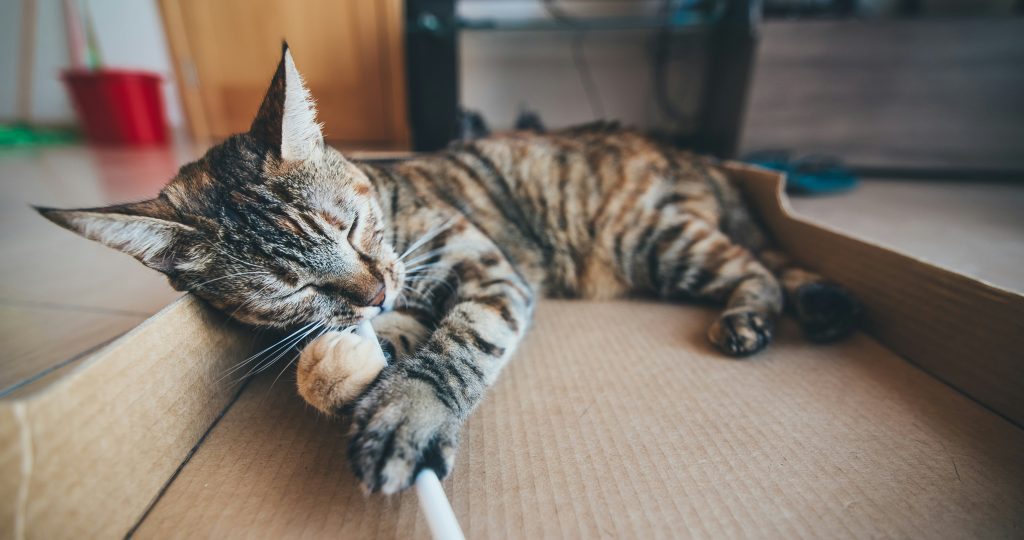
As February marks National Pet Dental Health Month, it is the perfect opportunity for owners to take extra care of their pet’s oral health. At Country Boarding for Cats and Dogs, we have explored five common hazards that cat owners should be wary of to ensure their whiskered companions maintain optimum dental health. Enjoy!
1. Dental Floss and Yarn
Cats are notorious for their love of stringy things, but these seemingly innocent playthings can quickly turn into dental hazards. Dental floss and yarn, when ingested, pose a serious risk of getting entangled in your cat’s digestive tract, leading to severe complications. Choose safer alternatives like designated cat toys to satisfy their playful instincts without jeopardizing their oral health.
2. Beware of Bones
While the image of a cat contentedly gnawing on a bone may seem idyllic, it is crucial to avoid offering your cat cooked bones. Cooked bones can splinter, causing oral injuries and posing a choking hazard. Instead, consider specially designed dental treats or toys that promote healthy chewing without the associated risks.
3. Say No to Sticky Treats
Just as with humans, cats should steer clear of sticky treats. Treats with high sugar content can contribute to tooth decay and gum disease. Additionally, sticky substances can cling to your cat’s teeth, creating an environment ripe for bacterial growth. Consider buying dental treats specifically created to support feline oral health, offering a tasty alternative without compromising their dental well-being.
4. Plants that Pack a Punch
Many cats enjoy a nibble on plants, but certain flowers can be hazardous to their dental health. Plants like lilies are not only toxic but can also cause oral irritation. Keep potentially harmful plants out of reach and ensure your home is adorned with feline-safe greenery.
5. Dairy Products
Contrary to popular belief, not all cats are equipped to handle dairy. While some may tolerate it well, many cats are lactose intolerant, and dairy products can lead to upset stomachs and digestive issues. Moreover, the sugars present in dairy can contribute to dental problems. If you want to treat your cat, choose feline-friendly alternatives.
Oral Health Tips for Cats
Regular Vet Checkups: Schedule routine dental checkups with your veterinarian.
Dental-Focused Toys: Provide toys designed to promote dental health, encouraging chewing and play.
Catnip Alternatives: If your cat enjoys nibbling on plants, offer catnip or cat grass as safe alternatives.
Dental Treats: Incorporate dental treats into their routine for a tasty and tooth-friendly snack.
Brushing Routine: Introduce a gentle brushing routine to keep your cat’s teeth clean and healthy.
Conclusion
By avoiding these common feline health hazards, you will be ensuring that your cat’s teeth stay gleaming and their oral health remains in the best condition. If you would like to book your feline friend in to our luxury cattery then contact us on 01462 742658. We hope to see you both here soon!